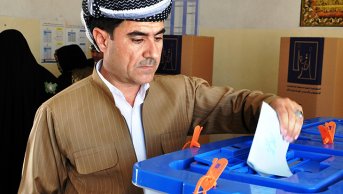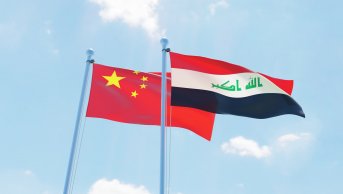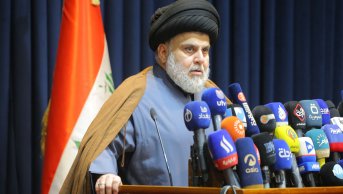In Whose Hands is Kirkuk's Fate?
Kirkuk governor Dr. Najmaldin Karim added a new problem to the governmental crisis in Kurdistan Regional Government in Iraq (KRG), the ongoing unstable relations with Baghdad, the economic issues, the referendum debates and the discussions on fight against ISIS. In his statement, Political Bureau member of the Patriotic Union of Kurdistan (PUK) and Governor Karim said that Kirkuk would now break away with Baghdad in all circumstances and suggested three proposals. Karim’s proposals are to attach the city to the Kurdistan Region; to keep it as an "autonomous region" for a few years and to hold a referendum on the joining of the city to the Kurdistan Region after a few years. Kirkuk’s future has come to the agenda in such a period when the KRG President Masoud Barzani has lately started to raise his voice about the independence referendum and debates have increased on breaking away from Baghdad with Czechoslovakian model (peacefully). This embodies several messages inside. What is up for Kirkuk where economic life has come to a standstill, insecurity has reached a disturbing level and the uncertainty of the future has gradually deepened?
A Message with PYD in Kirkuk
Following the statements of the governor, some Arab and Turkmen parties even drafted a law on an "autonomous status" for Kirkuk for 8 years, independently from Baghdad and Erbil. Leaders of the Kurdistan Democratic Party (KDP) and the PUK who are opposed to the proposal believe that Kirkuk should be inarguably attached to the Kurdistan Region and that the uncertainty in the city will otherwise be deepened. Former Minister for the Disputed Territories in the Kurdistan Region and University of Erbil President Dr. Mohammed Ihsan has indicated that the proposal was previously made by Turkmens and has alleged that an 'autonomous region' of Kirkuk will weaken the Kurds on international level.
Shortly after Karim's proposal, Salih Muslim, co-president of the Democratic Union Party (PYD), Syrian affiliate of the PKK which remained close to the PUK-Gorran line and against Barzani, visited Governor Karim in Kirkuk on 12 June. After the visit, Muslim used the statement of Jalal Talabani, the founder of the PUK, saying that "Kirkuk is Jerusalem of the Kurds" and indicated that the Kurds would never give it up. These statements disturbed Turkmens. Iraqi Turkmen Front, which condemned the statements of Muslim, criticized what Governor Karim said about the support of the people in Kirkuk to the PYD. Acting Head of the Kirkuk Provincial Council Rebwar Talabani also participated in the meeting which was held in the governor’s office in Kirkuk. This meeting can be said to aim to give a clear message to Turkmens. The visit reminds that the PYD does not want to be excluded from the Kirkuk issue and that the Governor may use the PYD card against the KDP and allow PKK to increase its activity in the region when necessary. Therefore, we can say that Kirkuk may cause important problems on Erbil-Sulaymaniyah line in the medium term.
Legitimacy Wars in Kirkuk
The Iraqi army withdrew from the region after ISIS reclaimed Mosul on 10 June 2014. Therefore, the Peshmerga forces of the KRG army were left as the single actor in Kirkuk. Having launched a big attack in the city in January 2015, ISIS reclaimed some important regions in the city center and even killed General Shirko Fateh, one of the commanders of the Peshmerga forces. Even though the attack in Kirkuk signaled that the war would spread to a larger front in the Erbil government in the long term, the air operations of the USA and the land operations of the Peshmerga cleared ISIS away from the city. Therefore, the Kurds, who wanted to include Kirkuk in their region for long years, seized an important opportunity and took full control in the city.
Although as a ‘disputed territory,’ Kirkuk’s future was expected to be determined in Article 140 of the Iraqi Constitution, no step has been taken so far concerning the issue. This deepens the political and social chaos. Even though the article foresees a census and referendum in the mentioned regions, Iraq cannot sufficiently contribute to the region in political, military and economic terms. Since this strengthens the hands of KRG in the region, Baghdad government embarks on different initiatives.
Debates have become more intense due to the decision of the Ministry of Domestic Affairs in Iraq that the Arabs who have migrated to and resided in Kirkuk for three years due to fight against ISIS can enjoy the right of habitation. Kurdish parliamentarians who allege that 600 thousand Arab immigrants were settled in the city after the outbreak of fight against ISIS indicate that they will not recognize the decision and Baghdad tries to play with the demography of the city upon this decision. In the meantime, Badr Organization, which is a Shiite militia known to have close relations with Iran, has published a declaration on its official website and blamed the PUK for preventing the Shiite militia from entering Kirkuk. The threats that “everyone should be prepared for bad consequences in Kirkuk” in the statement refers to what will happen in the post-ISIS period.
Tensions about Kirkuk between Baghdad and Erbil continue in economic terms as well. Exports have come to a standstill due to the ISIS invasion in the region and the damages it has caused in the oil pipelines in Kirkuk, which used to sold 600 thousand barrels per day through Mosul until 2013. KRG, which operated Havana and Bai Hassan oil reserves in Kirkuk, extracted 150 thousand out of 650 thousand barrels per day from Kirkuk. However, the central government banned the oil export from Kirkuk through Erbil in March. Even though the central government has received taxes from the region as well as 50 thousand barrels of oil per day, there is a lack of military, political and infrastructural services and this strengthens the social and political legitimacy of KRG administration. Furthermore, KRG has increased its popularity in the country and the world with the propaganda that the Peshmerga saved Kirkuk from ISIS and this reduces the possibility of military and political resettlement by Baghdad of the crisis in Kirkuk.
Barzani’s Sensibility to Kirkuk
The Kurds’ interest in Kirkuk dates back to Mullah Mustafa Barzani who claimed that “Kirkuk is the heart of Kurdistan”. Saddam’s proposal to share Kirkuk between the Arabs and Kurds in the 1970 Agreement was rejected by Mullah Barzani. Barzani answered the question as to why he violated the agreement as follows: “We are ready for anything in this cause, even though it is decided on the death of us all. I am afraid that the Kurds might spit on my grave and ask: ‘Why did you sell Kirkuk?’” This answer is seen as a historical basis of the insistence of Kurds on the Kirkuk issue.
The KRG President Masoud Barzani who acts upon the legacy of his father about Kirkuk states that “they would fight until they lose the last Peshmerga in order to hold Kirkuk in their hand,” which shows that the Kurdish government will show resistance in the city. There is no doubt that Governor Karim, who was the doctor of Barzani’s father and accompanied Barzani in the USA for a while, is among the closest witnesses of the sensibility of Barzani family to Kirkuk.
The KDP, PUK and Gorran, which demand referendum for Kirkuk in accordance with the Article 140, do not accept an autonomous status for Kirkuk which Turkmens demanded with the application to the Constitutional Court in 2007; the application was refused. KRG President Barzani indicates that they favor the decision of the people on the fate of the city and they will show respect if the people do not want to be incorporated to the Kurdish region as a result of the referendum to be held. He even states that they would otherwise run the risk of war.
The regional actors have different views about the indecisiveness of Baghdad government. It can be considered that Baghdad, which does not want Kirkuk to be attached to Erbil government due to its oil reserves, might support the idea of an autonomous region in case it cannot gain dominance over the region. It is not difficult to predict that Iran, which closely follows the developments, will pursue a policy that will ensure the control of the PUK but not the KDP in the region, if Kirkuk is taken under the KRG control. Kirkuk Governor Najmaldin Karim had talks with President Recep Tayyip Erdogan and former Prime Minister Ahmet Davutoglu concerning the ‘autonomy’ of Kirkuk and stated that Turkey clearly demanded a special status. It seems that Ankara, which attaches a historical importance to Kirkuk, will indispensably come face to face with Erbil.
Masrour Barzani, Chancellor of the Kurdistan Region Security Council, indicates that Iraq should be transmitted to a confederal system divided between the Kurds, Sunnis and Shiites in order to end the conflicts in the region in the post-ISIS period. He also states that the central government has lost its function, which shows that Erbil is ready to wage a war against Baghdad. The KRG, which does not consider independence without Kirkuk, is the biggest power at the table, which will determine Iraq’s future. According to the Iraqi Constitution, a census and then a referendum should be held after the normalization process with full implementation of the Article 140. The referendum which was supposed to be held at the end of 2007 but ended in uncertainty did not reach a conclusion. This may trigger an ethnical war among Kurds, Turks and Arabs in the region. There is no doubt that this situation will accelerate the division process of Iraq which is on the verge of a failed state with a multiplier effect.
This article was published in Ortadoğu Analiz journal with the title of "In Whose Hands is Kirkuk's Fate?”










